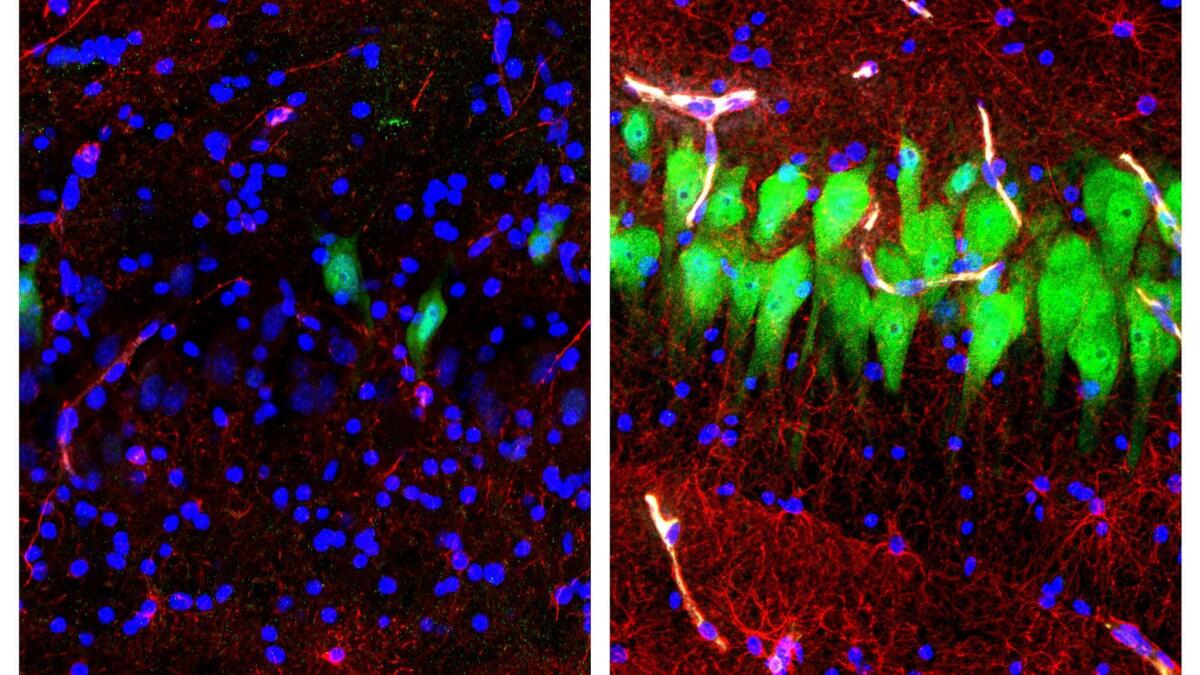Op-Ed: Calm down, everyone. Keeping dead pig cells alive is not ‘brain resuscitation’

- Share via
It’s alive! Like something out of Mel Brooks’ “Young Frankenstein,” a group of scientists at the Yale School of Medicine recently tried to revive dead brains from pigs. As reported Wednesday in the journal Nature, by pumping and filtering nutrient-filled fluid through the brains’ blood vessels, the scientists managed to preserve some brain cells that were dying and restore some cellular function.
A technological feat, to be sure. Does this call into a question the finality and irreversibility of brain death as death? I think not.
I’ve been a passionate activist on behalf of organ donation for 18 years, so this is not an abstract issue to me. If a person declared brain dead is not actually dead, or if that condition is reversible, it would be immoral to remove organs for transplantation because that would be killing the donor. That is not what this study shows, however. And yet the response seems completely disproportionate to its findings.
Bioethicist Nita Farahany from Duke Law School remarked: “It was mind-blowing. … We had clear lines between ‘this is alive’ and ‘this is dead.’ How do we now think about this middle category of ‘partly alive’? We didn’t think it could exist.” Hank Greely, president of the International Neuroethics Society and a Stanford law professor, said, “It blew me away. … Assuming always that this work is replicated, I think it’s going to force us to think harder about how we declare somebody dead or not.”
Frankly, I’m amazed at their amazement.
For years, researchers have been culturing cells taken from brains that were oxygen-deprived for more than eight hours. The only thing new here is that the cells remained within the brain structure instead of being put in a petri dish. There was very limited restoration of cellular function. More importantly, there was no restoration of brain function — no communication between cells or coherent organized neurological processes.
Just because there are living cells in a brain doesn’t mean there is consciousness, thoughts, pain or pleasure.
And what indeed are the ramifications extending the life of cells in an organ that doesn’t work? Professors of bioethics Stuart Youngner and Insoo Hyun at Case Western Reserve University School of Medicine suggest this means that the medical community needs to debate when it’s reasonable to abstain from removing organs from brain-dead, heart-beating bodies in order to focus on “brain resuscitation.”
But there is a world of difference between cells and an organ. Live heart cells can be found inside a dead heart; that doesn’t make the heart alive. Just because there are living cells in a brain doesn’t mean there is consciousness, thoughts, pain or pleasure.
The brain of a person with a fatal head injury inevitably begins to swell inside the skull to the point that the heart can no longer pump oxygenated blood into it. Without oxygen, chemical reactions cause the cell membranes to break down and liquefy. Once this process starts, the person’s brain is decaying in the same manner of someone who had died of a heart attack. Should we also rethink burial or cremation for heart attack victims?
The media circus around this study implies that researchers created a Lazarus-type technology that can resurrect the dead. They did not. They simply found that cells die more slowly than previously thought and they were able to support the cells and enable them to regain limited function.
Enter the Fray: First takes on the news of the minute from L.A. Times Opinion »
In spite of the oohs and ahhs of the public, the Yale scientists were very careful in describing their findings. “It is important to distinguish between resuscitation of neurophysiological activity and recovery of integrated brain function (that is neurological recovery),” they wrote. “The observed restoration of molecular and cellular processes … should not be extrapolated to signify resurgence of normal brain function. Quite the opposite: at no point did we observe the kind of organized global electrical activity associated with awareness, perception, or other higher-order brain functions.”
The Yale study shows that some brain cells die over a longer time period than previously thought. If researchers can use these findings to reverse brain damage before brain death, more power to them. But medical imaging shows that after a day or so without oxygen, brain cells begin to liquefy. And once liquefaction is underway, the brain is most definitely irreversibly dead and viable organs should be donated to save other lives.
Robby Berman is the founder and director of the Halachic Organ Donor Society. Twitter: @robbyjberman
Follow the Opinion section on Twitter @latimesopinion and Facebook
More to Read
A cure for the common opinion
Get thought-provoking perspectives with our weekly newsletter.
You may occasionally receive promotional content from the Los Angeles Times.






